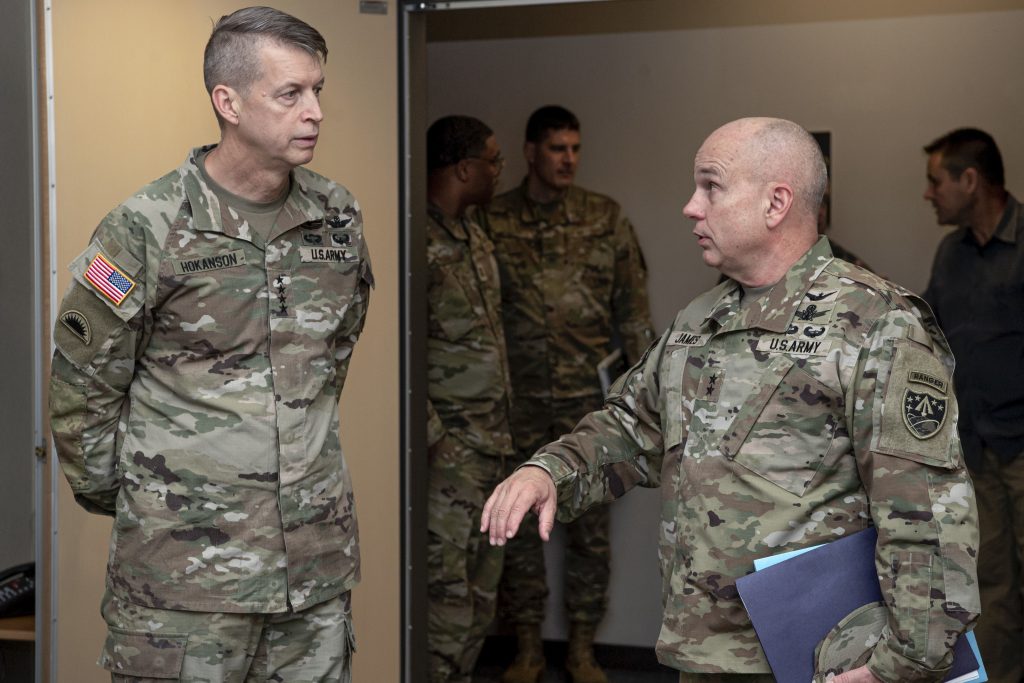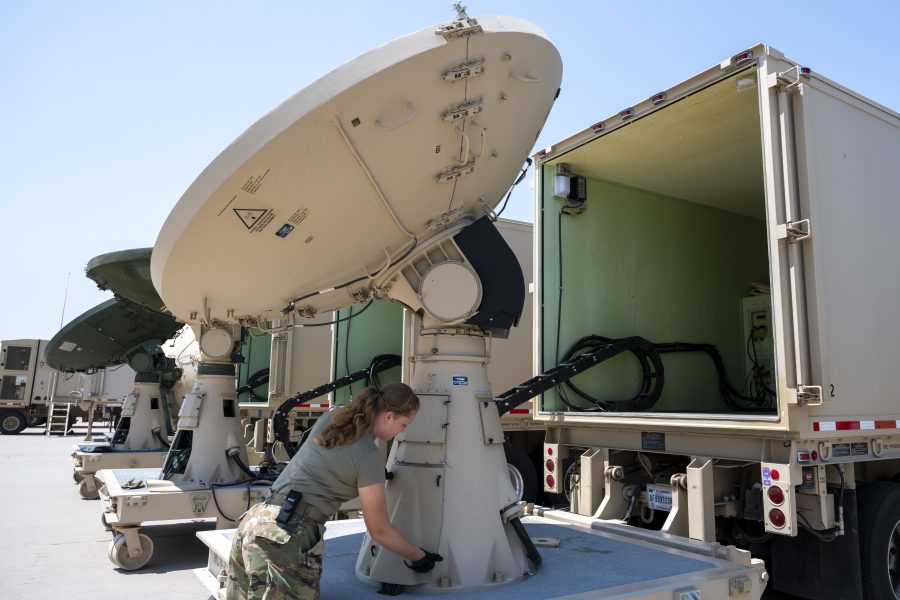National Guard officials and state governors are arguing against removing space missions from the Guard, challenging a key element of the Department of the Air Force’s plan on how to staff its space missions.
The long-simmering issue came to the fore recently after the leaders of the National Governors Association, Govs. Spencer Cox (R-Utah) and Jared Polis (D-Colo.) released a statement blasting the Department of Air Force’s plans to create part-time Guardians in lieu of a Space National Guard.
Fourteen Guard units in seven states and Guam currently have space-related missions, such as missile tracking and electronic warfare. About 1,000 Air National Guardsmen are assigned to such missions out of an overall force of over 100,000. The Space Force, meanwhile, has fewer than 10,000 uniformed Guardians.
The Department of Air Force has proposed legislation to fold these Guard units into the Space Force, which can now accept part-time members through the recently passed Space Force Personnel Management Act. But National Guard officials and governors are pushing back, arguing they had been excluded from the decision-making process.
“Why should governors have important input to that? Well, because of their capabilities being pulled away from states,” Air Force Maj. Gen. Richard R. Neely, the adjutant general of Illinois, told reporters April 8.
The Guard has also cited surveys that up to 86 percent of space-focused Guardsmen would not transfer to the Space Force.
In contrast to the Department of Air Force, National Guard leaders have argued for establishing a separate Space National Guard, asserting that the cost and bureaucracy would be nominal.
“It would work exactly like it is right now,” the Chief of the National Guard Bureau Army Gen. Daniel R. Hokanson told Air & Space Forces Magazine in an interview in late February. “We’ve been in the Guard performing this mission for over 20 years. We’re doing it today. We have Guardsmen deployed overseas doing the space mission. Some of our units are deployed in place, meaning they’re doing their mission every single day, day-to-day.”

Officials on all sides of the issue say their main concern is doing the mission effectively without added cost and bureaucracy. The issue is currently under review as part of a congressionally mandated study that is expected to be released in the next few weeks.
Hokanson said his position was driven by his “best military advice” as a member of the Joint Chiefs of Staff.
Whether the costs would be as minimal as the proponents of the Space National Guard say is a key question. The issue was previously studied by the Congressional Budget Office, which said in 2020 that a Space National Guard would cost around $100 million a year to operate for around 1,500 personnel if it included Army National Guard space personnel.
Yet proponents of a Space National Guard say it could be created for less. National Guard officials also say Guardsmen can perform state duties such as disaster relief and highlight the Guard’s State Partnership Program, which pairs states with foreign countries to create tight alliances.
“I really see it as cost-neutral,” Hokanson said. “They’re still being paid for by the Department of the Air Force, so there’s no increase in the budget. … I look at it like all we do is change the signs in front of the building and the people can change their name tapes.”
Further complicating the picture, preserving the status quo could be an option: that is, leaving space-related functions in the Air National Guard.
“This was really one of the first issues we were looking at prior to the standup of Space Force—what are we going to do with the Guard and Reserve units?” said retired Air Force Col. Stuart Pettis, who worked on the creation of the Space Force. “We’ve been studying this since 2019.”
“We’re not in a world where we only have two options,” added retired Space Force Col. Charles Galbreath of the Mitchell Institute for Aerospace Studies. “I think at this point, we absolutely need to take a good hard look at all three options and not ignore that there are in fact three options.”
Chief of Space Operations Gen. B. Chance Saltzman and Secretary of the Air Force Frank Kendall have expressed confidence that shifting space-relation Guard missions to the Space Force will better use civilian talent. And Kendall has argued that the change would not be as dramatic for current Guard personnel as critics suggest.
“We’re not asking them to jump off a cliff,” Kendall said. “We’re asking them to go to another arrangement which will be very, very like the one that they’re currently serving under. They’re not going to see much change frankly, as I see it.”
Hokanson suggested, however, that the Department of Air Force’s plan was full of uncertainty.
“The concern is we don’t know how this Space Force Personnel Management Act is going to work out,” Hokanson said. “We’ve never done it. They’re implementing it now. The Guard has been around for almost 400 years.
